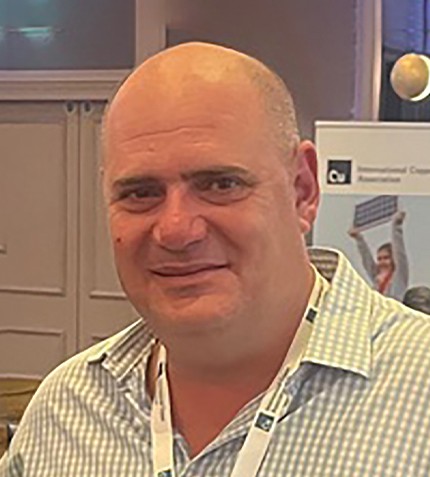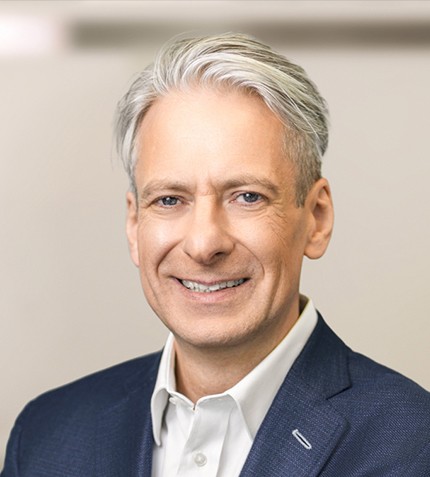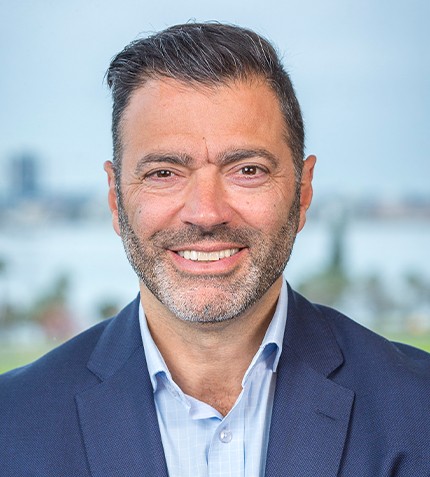
"The costs of building mining infrastructure are very high, and investors are wary of investing high amounts considering the perceived volatility and political risks. The AFC plays a pivotal role in developing the industry by unlocking the value of African assets through sustainable infrastructure."
RELATED PUBLICATION
ARTICLES FROM THIS PUBLICATION
Osam Iyahen
SENIOR DIRECTOR NATURAL RESOURCES, AFRICA FINANCE CORPORATION
What is the role that Africa Finance Corporation (AFC) plays in bridging the infrastructure gap in Africa?
Africa is a paradox of challenges and opportunity. Home to three of the 10 fastest-growing economies globally, host to a rapidly expanding middle class, and with enormous resource potential, Africa has the highest levels of poverty and the lowest development indexes globally. In a continent where 70% of its 1.2 billion population is aged under 30, there is an urgent need for change. Demographics, but also climate change and the disruptive effect of technologies necessarily drive changes and AFC’s mission is to see these changes turned into opportunities for the future of the continent.
AFC was founded in 2007 with a broad mandate of pioneering African-based solutions for the continent’s infrastructure gap, a gap that hinders regional integration, encumbers economic development, and slows down social progress. As an example, a two-hour drive from Lagos to Accra takes seven hours due to current infrastructure bottlenecks. In over a decade, AFC has attracted capital from across the world, investing back more than US$8 billion across 32 African countries and the corporation has one of the highest capital Moody ratings on the continent (A3/P2), representing a trusted source of finance. We invest in five infrastructure sectors: natural resources, heavy industries, power, telecommunications, and logistics. As a multilateral organization, the AFC incurs less political risk, while being able to invest in early-stage, high-risk projects that other investors hesitate about. In total, we have 32 country members, having added Mauritania, Namibia, Senegal, Eritrea and Madagascar in the last year
How important is mining within AFC’s developmental mandate?
The mining sector is a key pillar within the industrialization project. The trickle-down socioeconomic impact of mining is significant, with every dollar invested stretching very far across the value chain. However, it would be naïve of us to deny the challenges: the lack of infrastructure undermines the growth of the mining industry, which is why projects like Guinea-Conakry's Simandou, the largest iron ore deposit in the world, are not being developed. Additionally, the costs of building mining infrastructure are very high, and investors are wary of investing high amounts considering the perceived volatility and political risks. The AFC plays a pivotal role in developing the industry by unlocking the value of African assets through sustainable infrastructure.
How can policy and investments be better directed to aid downstream beneficiation and foster job creation?
Beneficiation is a very topical issue, dear to the AFC and central in our mandate. To ensure that local populations see the benefits of their countries’ riches, African countries need to start processing materials. We are seeing the first positive changes, such as the reactivation of the Ajaokuta steel mill and the opening of the first gold refinery in Nigeria.
How do you perceive investment appetite in Africa considering the global effects of the pandemic?
This year, M&A activity has increased in the resource industry; operators seek to consolidate in anticipation of a commodity market boom. Our view is that, as the pandemic clears out and economies begin to rebound, there will be many new opportunities for foreign investors, while governments will be more eager to invest in domestic infrastructure. We expect economies to take an inward-looking approach towards investments. We aim for AFC to be an active player in the M&A space, and we will contribute especially in the development of downstream assets. I stay optimistic that 2021 will mark a new dawn in terms of economic growth, and we will see more of this activity.
Drawing upon AFC’s own due diligence process, how are ESG considerations shaping investment decisions?
We notice increasingly higher standards for sustainability and growing societal consciousness that will shape capital allocations. The potential for job creation or how women or children may benefit from a financial decision are factors taken into account as part of a company’s right to operate in a region, so these need to be considered from the onset. Sustainability, whether social or environmental, requires a multi-stakeholder approach, a joint effort particularly between governments and operating companies. AFC finances projects that stand the test of time and that also respond to sustainability concerns; we look at more of an ‘eco-system’ approach that has more long-term beneficial impacts for society.











